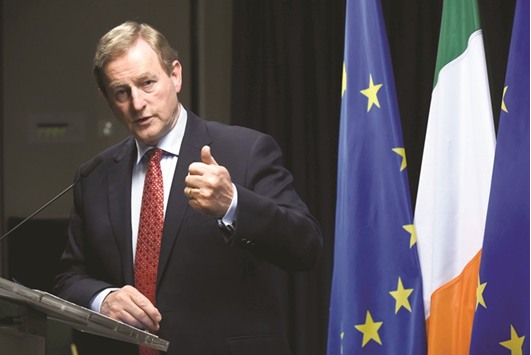European Union leaders has promised to embrace the British province of Northern Ireland into the EU if a referendum in the future were to unite it with the Republic of Ireland.
At a summit on the EU’s plan for negotiating with Britain as it leaves the bloc, Irish Prime Minister Enda Kenny asked fellow members to acknowledge that Northern Ireland would, like East Germany in 1990, automatically enter the EU in the event of unification with existing member state.
The 1998 Good Friday Agreement to end violence in Northern Ireland foresees the holding of referendums on both sides of the border on uniting the island if London and Dublin see public support for that.
European Union leaders gave their political endorsement to what Irish and EU legal experts say is the position in international law of such territorial changes.
“This is not about triggering any mechanism ... the conditions for a referendum do not currently exist, but the acknowledgement of the principle, the potential, within the Good Friday agreement, is hugely important,” Kenny told reporters.
Some EU officials said the declaration was a statement of “the obvious” and have stressed the summit was not taking a view on unification.
“The six counties (of Northern Ireland) remain part of the United Kingdom unless and until the people decide make a different choice by a democratic means in other words by a referendum,” Kenny said.
Kenny said Britain, whose prime minister Theresa May was absent from the summit, has itself taken the same view on EU membership for Northern Ireland.
Brexit minister David Davis acknowledged last month that, if it united with the Republic, it would be entitled to be absorbed into the EU.
Calls for a referendum on leaving the United Kingdom have picked up since Northern Ireland, like Scotland, voted to remain in the EU, while the United Kingdom’s two other nations, England and Wales, chose to leave in last year’s Brexit vote.
Elections in Northern Ireland in March denied pro-British unionists a majority in the province for the first time since Ireland was partitioned in 1921, further emboldening Irish nationalists and their main political representatives Sinn Fein.

Kenny: The conditions for a referendum do not currently exist.
